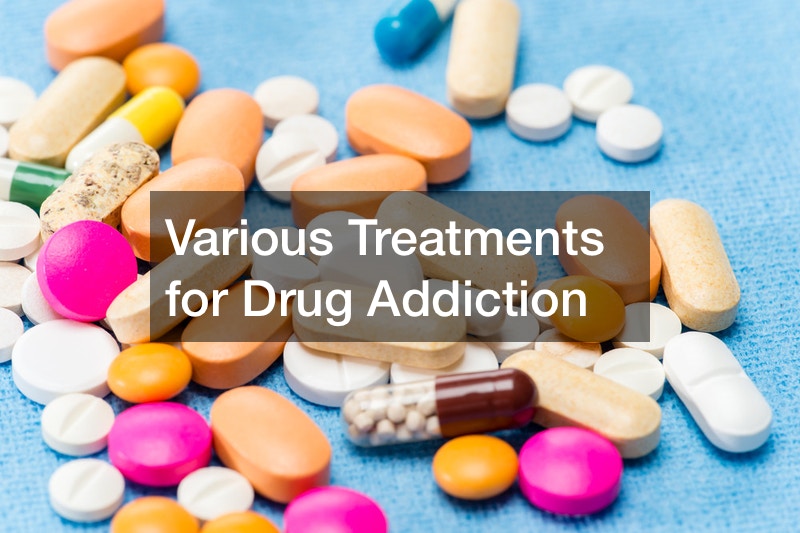
If you know someone with drug addiction, you likely know just how powerful this addiction can be. It can be extremely frustrating both for the person who is addicted to drugs and for his or her loved ones as well. For the loved ones, it can be tough watching someone spiral out of control and not be able to do anything to help them. However, it is important not to be judgmental. People may make the choice to start doing drugs, but no one makes the choice to become a slave to his or her addiction. This is why if someone chooses to seek help, you should definitely be supportive of that person in their journey to do so.
If someone has an addiction, they may be able to seek help at a rehab center. Here, they can work with a counselor who can help them figure out associations between addictive personality and relationships, a plan in terms of addictive personality disorder treatment, how to combat addictive thinking patterns, and more useful knowledge that can help with adult addictions. It is possible to overcome an addiction, but in many cases, it is going to take a lot of hard work.
The unfortunate truth is that many Americans are addicted to painkillers and opioids, and many of these addictions in fact started out as use of prescription, over-the-counter drugs. It is believed, for example, that four in every five new heroin users had started out their addictions by misusing prescription painkillers. Today, many Americans, some of them as young as 12, are addicted to heroin or addicted to opioids, and without heroin detox and heroin treatment, these addicts may suffer greatly. Drug use may alienate friends and family ruin an addict’s finances, and cause them to lose their job, their home, and even their life in many cases.
Fortunately, treatments for heroin addiction are plentiful, and these treatments for heroin addiction range from methadone use to visiting rehab and detox centers in one’s home town or city. In some cases, addicts experience and intervention, when concerned friends and family members urge them to kick their drug habit to correct their damaged life. A heroin or opioids addict who agrees to such treatment may be monitored by medical professionals as they undergo treatments for heroin addiction. How might this work, and how often to Americans need treatments for heroin addiction?
Rates of Drug Use
Many statistics are being used to track how often and why Americans abuse substances, and how old they are. Statistics show, for example, that in the year 2015, nearly 591,000 people were suffering from heroin abuse disorders, and among them, 6,000 were adolescents and nearly 155,000 were young adults (in their 20s or so). Not all heroin users are regular addicts, but many are, and some 20.5 million Americans abused substances in 2015. Among them, two million were misusing prescription pain relievers and 591,000 of them were heroin users. Worse yet, this often leads to drug overdoses, and many have argued that current rates of drug-related deaths are a major health concern in the United States today. In particular, drug overdose fatalities are the leading cause of accidental death. Drugs may cost an addict their livelihood, their social life, their savings, and even their very life. Thus, they are urged to seek out treatments for heroin addiction right away and become clean and free of drugs. Many medical services can help.
Medical Treatments

One major way to clear an addict of a heroin problem is the use of methadone, a prescription drug that helps ease a heroin addict out of their habit. When injected, methadone’s effects may last from 24 to 36 hours, and its use may be prescribed by a doctor. This has been done for decades, and the numbers show that methadone treatment has a high success rate of 60-90% or so. And the longer a patient is in treatment, the higher the success rate of methadone treatment.
Drug addicts, either by their own initiative or urging from concerned friends and family, may quit their drug of choice “cold turkey” and start detoxing. This is similar to how an alcoholic may quit drinking altogether and a smoker may quit tobacco all at once, a method that enforces discipline in the person. It may be noted, though, that drug detoxing involves stressful and unpleasant side effects that may even be dangerous. Someone attempting a detox may need to undergo their withdrawal while being monitored by medical staff rather than attempt this alone at home. Facing withdrawal alone is risky, and it may also increase the odds of relapsing into drugs to escape the discomfort.
Thus, an addict seeking recovery can visit detox centers in their area and stay a few days, and they will be supervised by medical staff the entire time in case something goes wrong during the procedure. Here, the addict will allow themselves to detox, and they may have to endure side effects ranging from goosebumps to insomnia to vomiting, to chills or fever and even seizures in some cases. This is why medical staff will carefully monitor them to track their progress and keep them safe. Afterwards, the recovering addict may undergo therapy and counseling to help them adjust to a drug-free lifestyle and eliminate their need for drugs in their life. Licenses therapists and counselors can help with this, along with constant support from friends and family alike.
